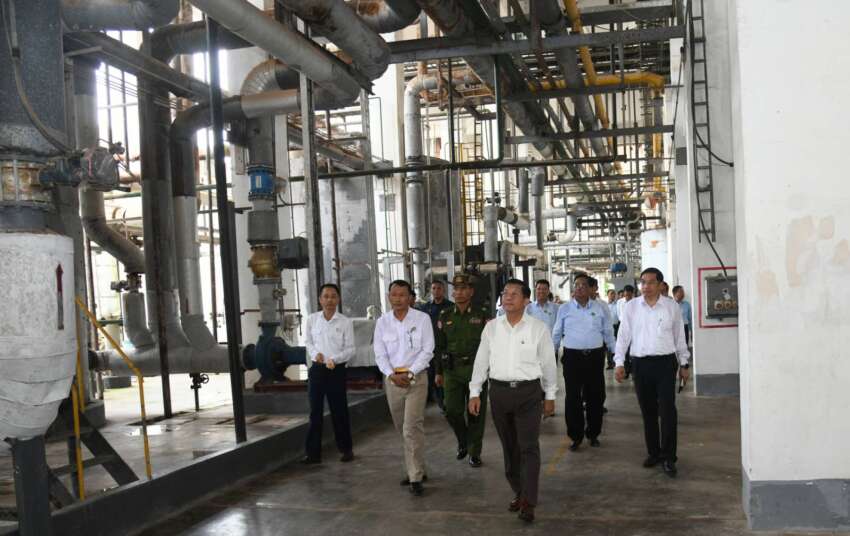
According to sources from Myanmar Oil and Chemical Enterprise, the military council has ordered a five-fold increase in ammonium nitrate production from fertilizer factories across the country to manufacture high-explosive weapons and bombs for their offensive operations against revolutionary forces nationwide. The military council is primarily utilizing fertilizer factories to produce ammonium nitrate, which is a crucial chemical compound in the manufacturing of bombs and explosives. The council has been increasing production of drone bombs, aircraft bombs, cluster bombs, and artillery shells, necessitating this significant increase in ammonium nitrate production.
A source from Myanmar Oil and Chemical Enterprise stated that all fertilizer factories across the country have been ordered to increase their ammonium nitrate production to five times their normal output, with all produced materials being sent directly to military weapons manufacturing facilities. The source indicated that this increased production of ammonium nitrate is directly linked to the military council’s escalated production of bombs and artillery shells. This represents a significant shift in the utilization of civilian industrial infrastructure for military purposes.
The military council has also reactivated Fertilizer Factory No. 3 (Kyawswa), which had been inactive since 2010 due to natural gas shortages. Since August 2023, this factory has been producing ammonium nitrate raw materials for the manufacture of bombs and high-explosive artillery shells. Currently, the military council is operating all fertilizer factories at full capacity for explosive weapons production, including Fertilizer Factory No. 1 (Sale), Fertilizer Factory No. 2 (Kyunchaung), Fertilizer Factory No. 3 (Kyawswa), Fertilizer Factory No. 4 (Myaungdaga), and Fertilizer Factory No. 5 (Kangyidaunt). All these facilities have been repurposed to prioritize increased ammonium nitrate production for military purposes rather than their original agricultural applications.



